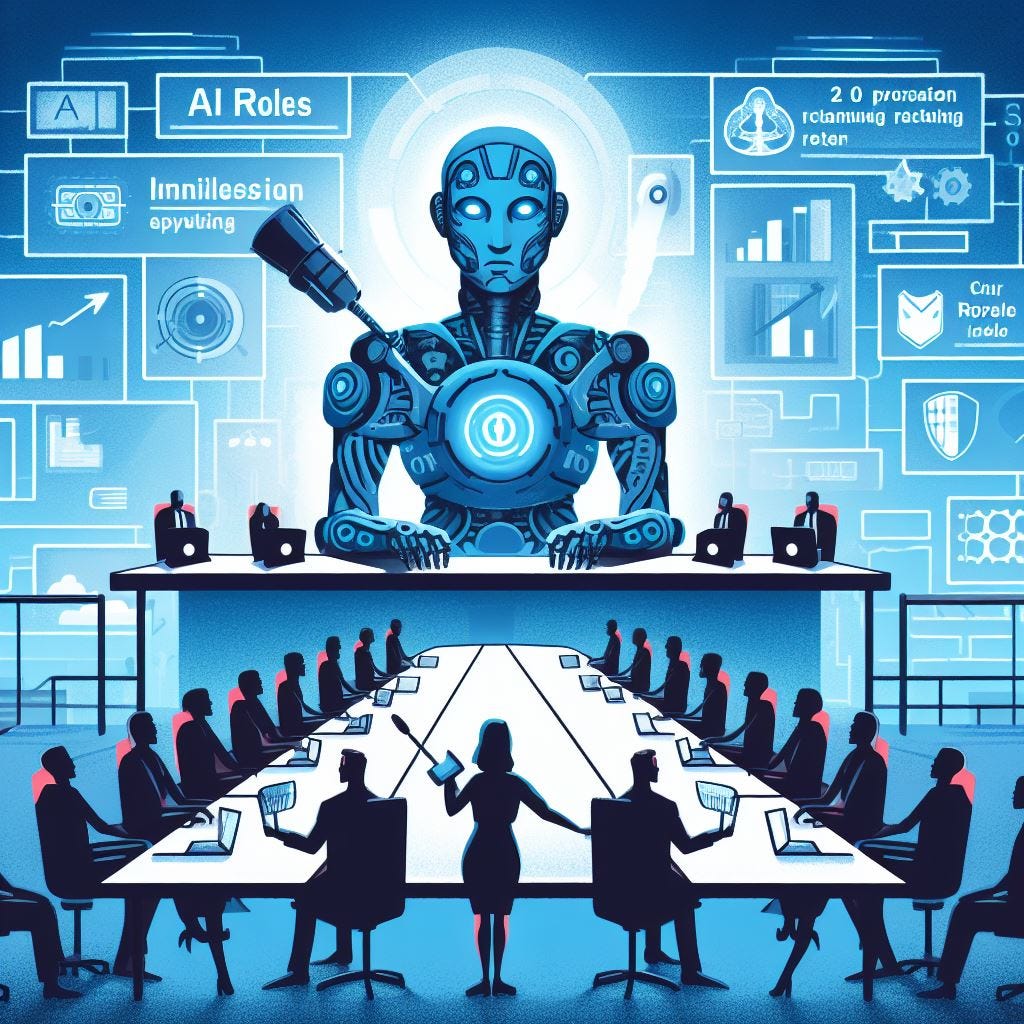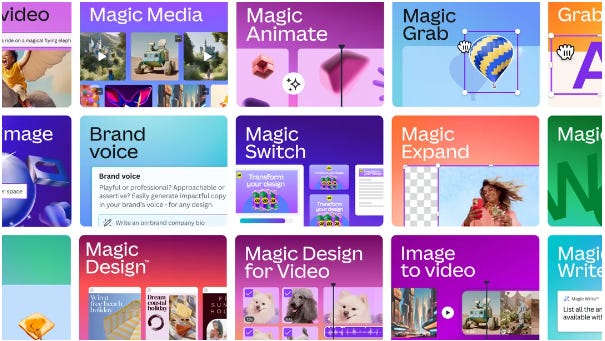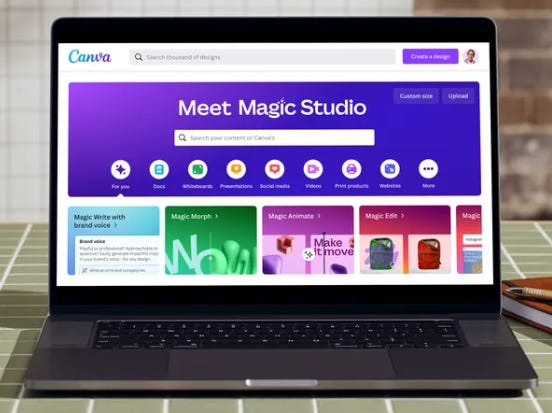The Impact of AI on Jobs: What the Future Holds
The Impact of AI on the Future of Jobs: Exploring Expert Insights on 19 Roles AI Will Create Versus 20 Professions It Can't Yet Replace
Artificial intelligence (AI) is transforming how we live and work. As AI capabilities advance, there are growing concerns about potential job losses but also new opportunities emerging. While some jobs may be susceptible to automation in the coming years, many roles requiring human skills will remain irreplaceable. This article explores key AI developments, expert opinions, and examples of jobs AI will create as well as jobs it likely can't replace.
AI Disruption: Current Landscape and Future Outlook
Recent advancements in AI, especially in natural language processing, are remarkable. ChatGPT can engage in thoughtful conversations and generate coherent essays on a wide range of topics. DALL-E creates intricate digital art from text prompts. However, while impressive, these systems lack generalized intelligence and operate within constrained domains. True artificial general intelligence (AGI), which can match human cognition across contexts, remains elusive.
According to AI experts like Andrew Ng, general automation of jobs is decades away. While AI can automate tasks, entire jobs are less susceptible as they comprise diverse activities. A 2021 McKinsey study estimates that just 5% of occupations could be fully automated by 2030 using current AI techniques. However, partial automation of activities could impact over 60% of jobs.
These projections align with a recent PwC report, forecasting that AI could displace 7 million jobs by 2037 but also create 7.2 million. New roles will emerge to support, manage, and work alongside AI systems. The net effect on employment may be neutral but will require workforce adaptation.
As per the World Economic Forum (WEF), AI could create 58 million net new jobs globally by 2025. However, manual and repetitive jobs are at high risk of declining, necessitating reskilling. An IBM study found that 120 million workers will require retraining in the next 3 years due to AI and automation. Educational institutions and governments will need to prioritize technical education and training programs.
Overall, experts concur that AI will reshape rather than replace jobs. The future of work will involve humans collaborating with machines, with productivity and economic growth opportunities but also potential labor market disruptions requiring mitigation. Policymakers should focus on smoothing the transition through upskilling initiatives, social protection, job matching, and AI ethics regulation.
19 Jobs AI Will Create
While eliminating some roles, AI will generate new employment areas. Here are 19 key jobs experts predict AI could create:
1. AI Specialists: As companies adopt AI solutions, demand will grow for AI experts like machine learning engineers and data scientists to develop and maintain these systems.
2. AI Legal Consultants: Expert attorneys to advise on AI regulations, ethics, and implementation in compliance with laws and standards.
3. AI System Trainers: Professionals who specialize in training AI models using techniques like supervised learning and reinforcement learning.
4. Robotic Automation Consultants: Experts who can consult enterprises on implementing robotic process automation to streamline operations.
5. Big Data Analysts: With the exponential growth in data, analysts who can process, interpret and extract meaningful insights will be invaluable.
6. Process Automation Experts: Professionals who can redesign processes to optimize automation, human-AI collaboration and productivity.
7. Algorithm Bias Auditors: Responsible for testing AI systems for algorithmic bias and discrimination against protected groups.
8. AI Ethicists: Philosophers and social scientists who develop ethical frameworks to guide responsible AI development and use.
9. AI User Experience (UX) Designers: Design seamless human-AI interfaces and interactions to enhance usability and adoption.
10. AI Business Development Managers: Strategize and identify applications for AI tools across different industries and domains.
11. AI Policy Analysts: Shape policies and regulations to govern AI use and mitigate risks while fostering innovation.
12. AI Cybersecurity Experts: Assess and fortify AI systems against data breaches, hacking and manipulation.
13. Autonomous Vehicle Engineers: Design and build self-driving transportation leveraging AI and sensing technologies.
14. Robotics Technicians: Maintain and optimize robots working alongside humans in settings like factories and warehouses.
15. Computer Vision Engineers: Develop and deploy AI systems that can process and analyze visual data for applications from manufacturing to healthcare.
16. Natural Language Processing Experts: Enable systems like chatbots and personal assistants to communicate naturally with humans.
17. Affective Computing Specialists: Build systems capable of recognizing and responding to human emotions and sentiments.
18. Neural Network Engineers: Design advanced deep learning algorithms modeled on the human brain's architecture.
19. AI Educators: Create educational content and teach students about AI applications and development.
20 Jobs AI Can't Fully Replace
Certain occupations require intrinsically human traits and skills that AI has yet to master. Here are 20 key jobs experts believe will remain irreplaceable:
1. Nurses: Offer clinical expertise, emotional support and compassionate patient care.
2. Social Workers: Address sensitive issues using empathy, integrity and human judgment.
3. Psychiatrists: Treat mental health conditions drawing on medical training and emotional intelligence.
4. Physical Therapists: Leverage tactile feedback and interpersonal skills to heal and rehabilitate.
5. School Teachers: Impact students via mentorship, guidance and interpersonal connections.
6. Counselors: Provide therapy and advice to clients on personal, career and addiction issues.
7. Clergy: Lead religious communities through spiritual guidance and moral wisdom.
8. Elder Care Providers: Deliver personal care and companionship to seniors.
9. Child Care Providers: Nurture children’s social-emotional development through play and bonding.
10. Choreographers: Use creative vision and body awareness to design impactful dance performances.
11. Fine Artists: Express unique perspectives and emotions through their paintings, sculpture and artwork.
12. Musicians: Compose and perform music that moves people's hearts and minds.
13. Novelists & Poets: Create compelling narratives and literary works that capture the human condition.
14. Actors: Inhabit characters and evoke visceral human reactions across diverse roles.
15. Athletes & Coaches: Leverage motivation, strategic thinking, teamwork and athletic prowess.
16. Hairstylists: Understand clients' needs and preferences to craft personalized styles.
17. Interior Designers: Shape aesthetically appealing living and work spaces reflecting clients' tastes.
18. Chefs: Prepare novel culinary creations by artfully combining ingredients and flavors.
19. Gardeners & Landscapers: Craft beautiful outdoor environments using their horticultural expertise.
20. Massage Therapists: Apply individualized techniques and pressure using intuition and feedback.
The Way Forward: Education, Governance and Responsible AI
To navigate the AI age successfully, a multifaceted approach is required. Educational institutions must equip students with both technical capabilities and soft skills like creativity and emotional intelligence. Governments need to fund reskilling programs and research on AI's socioeconomic impacts.
Leaders should prioritize ethical AI development and humane, constructive deployment focused on enhancing rather than replacing human potential. With prudent policies and planning, AI can usher in an era of prosperity, complementing and partnering with human ingenuity to solve meaningful problems. But we must ensure the benefits are broadly shared and no one is left behind in the transition.
Human abilities like imagination, empathy, and ethics remain AI’s frontiers. While certain jobs will decline, humanity's spirit and resilience will persist by cultivating our innate strengths. AI may someday reach human levels of general intelligence, but it cannot replicate the full spectrum of human cognition and emotional depth. As long as we design and govern AI thoughtfully, integrating it in service of human welfare, the future of work can offer great possibilities for shared prosperity and purposeful cooperation between minds both carbon and silicon.








